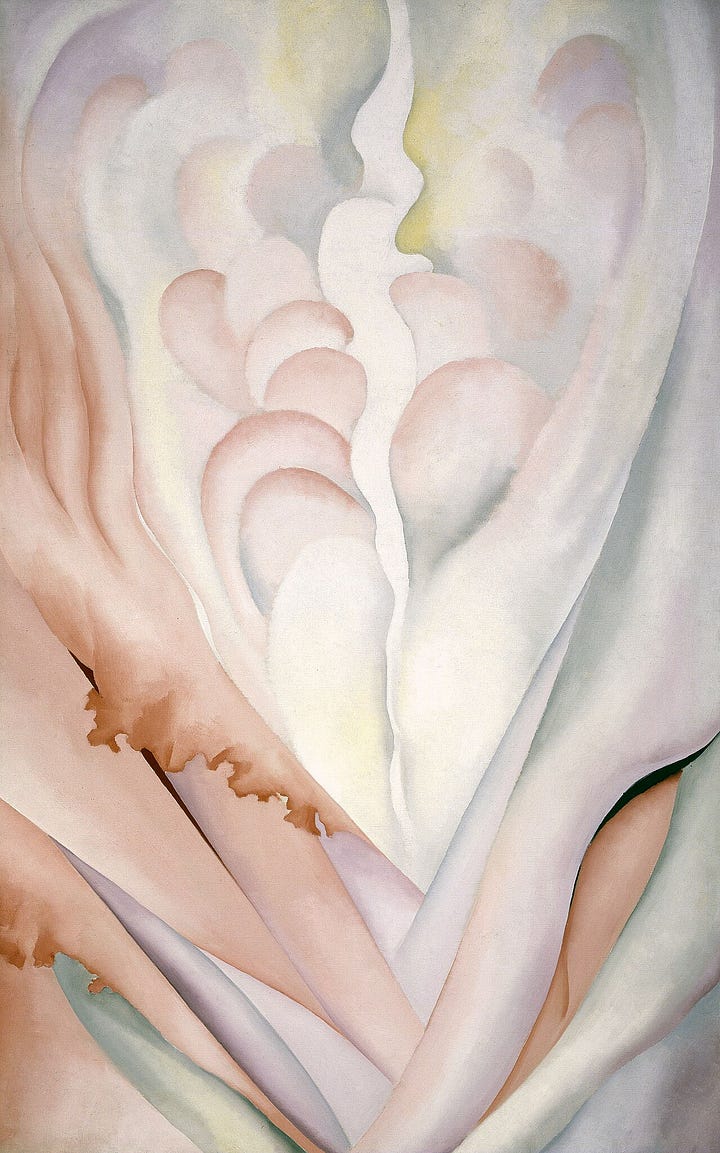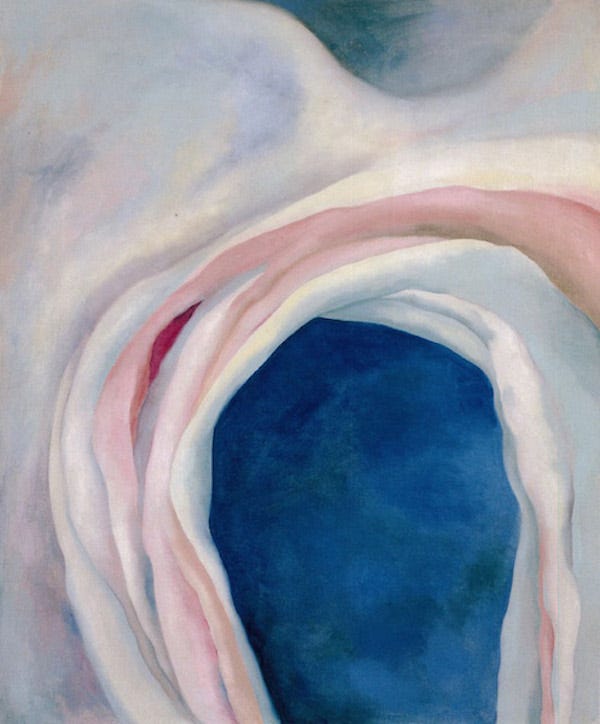What resists measure
What is lost when we flatten human worth to our intelligence?
ICYMI: This blog was formerly called Letters from a Luftmensch. Now it’s Soft Power. Here’s why.


A few months into dating my boyfriend, I told him that I do not wish to be loved for being good, but for being me. I couldn’t quite articulate what I meant at the time, to his exasperation and mine, but I think it was this: I wish to be loved not for particular virtues or accomplishments, but for my entirety: my ambitions and appetites, my curiosities and contradictions, my fears and foibles, my warmth and will.
From early in my life, and for many years, I felt flattened by a society that seemed to view me not as a whole person, but as a collection of traits to be measured and ranked: assessing intelligence through standardized test scores, determining desirability through dating app matches, evaluating performance through productivity metrics.
Though this flattening makes us legible, it erodes the particularities that make us human. More insidiously, it narrows our sense of possibility — both for our individual lives and our shared future. When we reduce our worth to narrow metrics of intelligence and utility, rather than recognize ourselves as singular beings with unique gifts and potentialities, we lose the capacity to see ourselves fully and imagine who we might become. We become “one-dimensional,” as Herbert Marcuse warned — shaped to serve the logic and values of the prevailing system; stripped of our individuality and freedom to define our own ends.
Now, we live in a world with ever-more capable machines, which already surpass human abilities in many cognitive domains.1 It’s no surprise that many are worried about human demoralization, or our ability to “live meaningful lives in a world where [we] are no longer the smartest and most capable entities in it.”2 This concern is understandable: if we map our identity and worth to our intellect, then it is only natural that the existence of a more “intelligent” entity stirs up fears of our own obsolescence.
But just as the existence of a more intelligent person doesn’t make us obsolete, neither does the existence of an intelligent machine. Demoralization does not come from no longer being the “smartest and most capable” people in the room — most people, myself included, already aren’t — but from living in a world where we are told and shown continuously that our gifts are not valuable, that we are replaceable, that the future will be imposed upon us by powerful entities with little regard for our hopes and lives.
Our ability to live a meaningful life has never depended on “intellectual supremacy,” both as individuals and as a human species. Rather, it hinges upon our capacity for self-determination — what the philosopher Wilhelm von Humboldt called “the highest and most harmonious development of [our] powers to a complete and consistent whole.”
This perspective allows us a much more expansive view of a human future alongside AI: one not organized around an intellectual hierarchy, where humans are demoted to second-class citizens while machines do the “real thinking,”3 but one in which AI can be used to support our capacity to think, experiment, and become.
Perhaps the creation of artificial intelligence is a chance for us to realize that competing on a narrow definition of intelligence is not, and never should have been, the way to value ourselves and organize society. We have the opportunity to reimagine society’s role as a steward of individual potential, instead of a standardizing and sorting mechanism. Rather than shepherding everyone through factory-model schooling and career paths, we can instead create the conditions that allow every person to discover and become themselves — a process that architect Christopher Alexander called unfolding.
Unfolding requires multi-dimensional exploration. It consists of an iterative process of contemplation, experimentation, and self-direction: the ability to think deeply about what we value, making imperfect decisions based on incomplete knowledge, act upon these decisions, and learn from the process. We learn not by taking pre-plotted steps toward an established goal, but by undertaking a looping process of iteration within the unknown — making attempts, making mistakes, making amends; and trying again.
But many systems we inhabit today — economic, technological, cultural, educational — do not foster our unfolding. They reward efficiency over exploration, predictability over originality, and compliance over curiosity. A school system that emphasizes standardized testing leaves little room for intellectual wandering. A workplace that prioritizes quarterly metrics and revenue often discourages long-term thinking and the risk-taking essential to real innovation. Even the algorithms that shape our online experiences steer us toward the familiar, reinforcing our preferences instead of expanding them.
In such environments, the ability to think for oneself or act in alignment with one’s values becomes harder to access. Whether by overt coercion or subtle mechanisms like algorithmic nudging, our capacity to unfold diminishes. Over time, we are shaped less by personal choice, but by external pressure. We forget how to exercise our agency — or that we even have the right, or the power, to do so.
Our task now is to design institutions and technologies that treat humans not as instruments to be optimized, but as beings who must unfold in their own way, on their own time. It requires creating tools and spaces that allow for greater freedom, personalization, creation, and exploration — that expand our capacity for discovery and expression, rather than sandpapering humans to fit pre-made molds.
Each of us is a unique gestalt of genes, gifts, experiences, peculiarities, and intelligences. Like the fable in which different animals are judged solely by their ability to climb a tree, if we value humans on a one-dimensional scale of intelligence, we will suffer a great human tragedy: depriving ourselves of the opportunity to discover and live into the fullness of who we are, and what we can contribute to the world. The real danger, then, is not that machines will replace us, but that we will have already flattened ourselves to be more like machines.
Thank you to the people, readings, and conversations that helped develop this piece:
AI Will Change What It Is to Be Human. Are We Ready? (Avital Balwit & Tyler Cowen, The Free Press)
Is My Toddler a Stochastic Parrot? (Angie Wang, The New Yorker)
Everything that turned out well in my life followed the same design process (Henrik Karlsson, Escaping Flatland)
The Case Against Perfection (Michael Sandel, The Atlantic)
Sari Azout’s talk at the Sana AI Summit
The Limits of State Action (Wilhelm von Humboldt)
One-Dimensional Man (Herbert Marcuse)
Unflattening (Nick Sousanis)
The Luminous Ground (Christopher Alexander)
Cosmos Institute — thank you to Brendan for pointing me toward Humboldt
Asterisk Magazine editing workshop — thank you to Taylor and John for identifying the central kernel of this idea and encouraging me to develop it
My colleagues at Imbue for the many conversations and feedback — particularly Jamie, Kanjun, and Matt
Though I don't believe LLMs are intelligent in the same way humans are. This Atlantic piece explains it well: “Large language models do not, cannot, and will not “understand” anything at all. They are not emotionally intelligent or smart in any meaningful or recognizably human sense of the word. LLMs are impressive probability gadgets that have been fed nearly the entire internet, and produce writing not by thinking but by making statistically informed guesses about which lexical item is likely to follow another.”
From AI Will Change What It Is to Be Human. Are We Ready? (Avital Balwit & Tyler Cowen in The Free Press)
From the same Free Press piece: “Every single workday, or maybe even every single hour, you will be reminded that you are doing the directing and the “filler” tasks the AI cannot, but it is doing most of the real thinking.
We don’t doubt that many people will be fine with that—and, in many cases, relieved to have so much of the intellectual burden removed from their shoulders.”


Some of these ideas remind me of a favorite Hermann Hesse quote, from Demian:
"Every person is more than just themselves; they also represent the unique, the very special and always significant and remarkable point at which the world's phenomena intersect, only once in this way, and never again. That is why everyone's story is important, eternal, sacred; that is why every person, as long as they live and fulfill the will of nature, is wondrous, and worthy of consideration. In each individual the spirit has become flesh, in each being the creation suffers, within each one a redeemer is nailed to the cross."